Explore Evelyn’s Blog for Insightful Life Guidance
Practical Progressive and Positive Tools for Spiritual Living

Self-Reflection: Unlocking Personal Growth and Change
Self-Reflection: The Key to Unlocking Personal Growth and Transformation
Self-reflection is an often overlooked yet immensely powerful tool for those seeking personal transformation. It’s a way to connect with ourselves deeper, understand our motivations, and develop clear pathways to lasting growth. For anyone feeling stuck, overwhelmed, or uncertain about the next step, self-reflection can guide transformative learning, igniting a journey that leads to deeper fulfillment and purpose. Sometimes, the answers are within, and still, we look for them in our surroundings.
We’ll explore how self-reflection fosters transformational growth, share stories that illustrate its impact, and provide practical strategies for creating a personal growth plan that aligns with your unique goals. By the end, you’ll understand why self-reflection is so crucial for personal growth and development—and how it can serve as a lifelong practice.
Why Self-Reflection is Essential for Personal Transformation

Consider a moment in your life when you felt at a crossroads. Perhaps you were unsure of the direction to take, weighed down by uncertainty, or felt something was missing. This is often when self-reflection becomes invaluable, serving as the first step toward clarity and growth. Through self-reflection, we can uncover the motivations behind our thoughts and actions, identify our deepest values, and, in doing so, begin the journey toward personal transformation.
Self-reflection involves a level of honesty and patience that may be challenging at first, but the rewards—a clearer sense of self, a stronger connection with our goals, and, ultimately, a more fulfilling life—are well worth it.
A Journey That Begins With Self-Awareness
Imagine an individual feeling overwhelmed by responsibilities. They might describe their daily life as being pulled in every direction, with barely any time for themselves. In moments of reflection, this person might start to see patterns: resentment toward certain obligations, unmet personal needs, or perhaps the realization that they’ve placed everyone’s needs above their own. This awareness is the first step toward a meaningful shift. By identifying and understanding these patterns, they can begin making changes that lead to personal growth and development.
The Power of Self-Reflection to Foster Transformative Learning
Transformative learning happens when we look at our life experiences through a new lens, allowing us to interpret our past in ways that promote growth. Self-reflection gives us the space to do this, to release judgments, accept where we are, and set a course for a future based on what truly matters to us. With each self-reflective moment, we gain insights that help us grow, moving us closer to personal transformation. Here is the detailed blog on self-reflective practice.
Shifting from Chaos to Calm
Leah is a woman in her mid-thirties juggling a full-time career, family responsibilities, and her personal aspirations. She often feels her life is a series of checklists, one task rolling into the next with little time to catch her breath. After years of pushing through, Leah seeks guidance from a personal growth coach. Together, they start with simple self-reflective practices, such as setting aside time each morning to identify her top priorities and asking herself, “What am I most grateful for today?”
Through these practices, Leah realizes she feels most anxious when her day lacks structure or feels out of control. By identifying these triggers, she takes proactive steps toward managing her responsibilities to allow space for rest and self-care. Her journey highlights the profound impact of self-reflection on personal growth goals, revealing how transformative learning often begins with small, mindful practices.
Practical Steps to Begin Your Self-Reflection Practice

Self-reflection doesn’t require hours of solitude or complex exercises. The key is to start with intentional introspection moments, allowing yourself to explore your thoughts, emotions, and actions. Here are a few ways to make self-reflection a manageable and practical part of your routine:
Set Aside Time Each Day
Find a consistent time to reflect, whether it’s ten minutes in the morning, during lunch, or before bed. Think of it as a check-in with yourself to observe your current state, what went well during the day, and what you’d like to improve.
Use Reflection Prompts
Starting with questions like “What did I learn today?” or “What challenged me today?” can guide your reflections. Over time, you may find it easier to reflect without prompts, but they’re helpful when building the habit.
Practice Gratitude and Positivity
Ending each reflection session with three things you’re grateful for can shift your mindset, helping you focus on the positives even when the day feels overwhelming.
Journaling
Writing down your reflections can bring clarity and accountability. Journaling also provides a record of your journey to look back and see how far you’ve come.
Creating a Personal Growth Plan That Reflects Your Values
A personal growth plan can be a transformative tool, guiding you toward your personal growth goals while providing a structure to keep you accountable. Having a well-defined strategy brings intention to your journey, making it easier to stay aligned with what matters most to you. This plan should reflect your unique values, strengths, and aspirations, creating a roadmap supporting consistent growth. Crafting your growth plan begins with identifying what you truly want to accomplish, recognizing your values, and setting realistic, measurable goals.
Steps to Building a Personal Growth Plan:
Define Your Goals Start by exploring what areas of your life you want to enhance. Consider aspects like relationships, career, physical health, emotional well-being, or spiritual growth. Defining specific goals creates a vision of where you’re headed. Take time to connect each goal to your core values. For example, if a fulfilling career is essential to you, your goal might focus on gaining new skills, taking on leadership opportunities, or finding a role that aligns with your interests and strengths.
Break Down Goals Into Actionable Steps Transforming significant goals into smaller, actionable steps can make your path more straightforward and manageable. Each step should feel achievable and allow you to track progress. If one of your goals is to improve work-life balance, for example, you could start by setting boundaries for your work hours, scheduling daily self-care, or even setting reminders to take breaks throughout the day. Breaking down goals makes them feel less overwhelming, turning aspirations into practical steps.
Create a Timeline for Each Goal Setting a timeline gives your growth plan structure and helps create a sense of urgency, pushing you to take consistent action. When establishing timelines, consider both short-term and long-term goals. For example, if your long-term goal is to run a marathon, your short-term timeline might include weekly milestones, such as running a certain number of miles or improving your pace each month. Remember, timelines should be realistic but flexible, allowing for adjustments as your circumstances evolve.
Reflect Regularly on Your Progress Regular reflection will enable you to assess your progress and make necessary adjustments. Setting aside weekly or monthly check-ins can help you evaluate how well you’re sticking to your plan and identify areas that need more focus. Reflection isn’t just about tracking accomplishments; it’s also a chance to learn from setbacks and celebrate small victories. This process will keep your momentum alive, reinforcing your commitment to personal growth and development.
Seek Support When Needed Creating a personal growth plan doesn’t mean you have to go it alone. Working with a personal growth coach like Evelyn Foreman can provide valuable guidance, accountability, and encouragement. A coach can help you clarify your vision, refine your goals, and offer insight that enables you to stay motivated, especially when challenges arise. Even discussing your goals with supportive friends or family members can create a network of encouragement, helping you stay on track and motivated.

Making Your Personal Growth Plan a Living Document
A personal growth plan isn’t something you create once and never revisit. Instead, it’s a living document that evolves as you do. As you progress, you may find that some goals no longer resonate, or that your priorities have shifted. Revisiting and updating your plan regularly will keep it relevant and aligned with your current aspirations.
Consider integrating some of these practices to make your growth plan adaptable and resilient over time:
Set Quarterly or Bi-Annual Reviews: Revisit your growth plan at least every few months to assess your progress and make any necessary adjustments. If a goal no longer feels aligned with your values or needs, it’s okay to modify or replace it.
Adjust Goals to Reflect Growth: As you develop new skills or insights, your understanding of your capabilities may change. Adjusting your goals to reflect your growth can help keep your plan challenging and inspiring.
Celebrate Milestones Along the Way: Taking time to celebrate achievements, whether big or small, reinforces positive momentum. Celebrating milestones boosts confidence, making you more likely to stay engaged and motivated.
Creating a Vision Statement to Guide Your Growth
Creating a vision statement—a short, clear statement of what you want your life to look like—can be a powerful addition to your growth plan. This statement acts as your “why,” keeping you focused when distractions arise or challenges make it hard to stay on course. Think of it as a north star that aligns with your core values and aspirations.
For instance, if your primary goal is to live a balanced, fulfilling life, your vision might be, “I commit to nurturing my mental, physical, and emotional well-being, creating meaningful relationships, and growing through every experience.” This guiding statement reminds you of your purpose and can help you make choices that support your growth.
By approaching your personal growth plan as a dynamic, evolving tool, you create a powerful resource that continually guides you toward a life that aligns with your values, strengthens your resilience, and fuels your journey of personal transformation.
Building Your Personal Growth Plan: A Deeper Dive
Developing a personal growth plan is a dynamic process that evolves as you do. Each goal and milestone you set becomes an opportunity to reflect on your progress, adapt to new insights, and deepen your commitment to growth. The process of regularly reviewing your plan can bring a sense of purpose, aligning your actions with what matters most to you.
Finding Meaning Through Transformative Learning
Transformative learning doesn’t just change what we know; it changes who we are. Through self-reflection, we challenge old beliefs, address fears, and open ourselves to new perspectives. Over time, this kind of learning leads to greater empathy, resilience, and adaptability.
Example: Reframing Failure as Growth
One powerful example of transformative learning is reframing our relationship with failure. Many people see failure as a reflection of their abilities. However, through self-reflection, we can reframe failure as an essential part of growth. Each setback becomes a learning experience, helping us refine our approach and ultimately leading to stronger, more resilient growth.
Practical Ways to Make Self-Reflection a Lifelong Practice

Self-reflection isn’t a one-time activity but a lifelong practice. The insights gained from regular reflection can shape your values, strengthen your resolve, and provide a foundation for personal growth and development. Here are a few additional tips for making self-reflection an integral part of your life:
Schedule Weekly Check-Ins: Take 10–15 minutes each week to reflect on your progress, celebrate small achievements, and adjust your personal growth plan.
Surround Yourself with Reflective People: The people we spend time with greatly influence us. Seek relationships that encourage growth and reflection.
Incorporate Reflection into Daily Routines: Whether it’s during a commute, after a workout, or while cooking, finding small moments to reflect throughout the day can help keep self-reflection at the forefront of your mind.
Use Positive Affirmations: Affirmations can help combat negative self-talk, a common barrier to personal growth. Replacing critical thoughts with positive affirmations can gradually shift your mindset.
How Self-Reflection Leads to Personal Fulfillment
Ultimately, self-reflection is about creating a life that feels authentic and meaningful. As we gain self-awareness and align our actions with our values, we experience a deeper sense of fulfillment. We no longer seek validation from external sources because our actions are driven by our core beliefs and aspirations. This inner alignment is the essence of personal growth.
In conclusion, self-reflection is a powerful catalyst for personal growth and transformation. By embracing the process, setting a personal growth plan, and consistently reflecting on our actions, we open ourselves to a life filled with purpose, growth, and fulfillment.
The Role of a Personal Growth Coach in Supporting Transformative Learning
Self-reflection is a deeply personal journey, but that doesn’t mean you need to go it alone. A personal growth coach can provide support, accountability, and guidance. Coaches help individuals set specific goals, work through challenges, and identify areas for growth. They serve as a sounding board, offering an outside perspective that helps bring clarity to the reflective process.
When to Consider Personal Growth Counseling
If you feel stuck, overwhelmed, or unsure of how to move forward, personal growth counseling might be the next step. A counselor can guide you through deeper self-reflection, helping you identify emotional maturity or mental roadblocks that may be holding you back. With the support of counseling, you can develop a deeper understanding of yourself, gain insight into recurring patterns, and learn tools for overcoming obstacles. Also, if you want to read more about emotional maturity, here’s a thought-provoking article by Evelyn.

Setting Yourself Up for Lifelong Growth
Personal growth and development are lifelong journeys. While self-reflection might initially seem daunting, remember that every small step counts. You don’t have to have all the answers immediately; each reflection brings you closer to understanding yourself better.
Cultivate Gratitude and Positivity Along the Way
Practicing gratitude and focusing on the positive aspects of life are powerful tools for sustaining growth. By appreciating the journey, even with its ups and downs, you’ll find joy and motivation in your pursuit of a fulfilling life.
Take the First Step with Evelyn Foreman
If you’re ready to begin your journey toward transformational growth, consider connecting with Evelyn Foreman. Whether you’re looking to create a personal growth plan or explore personal growth counseling, Evelyn offers a compassionate and supportive approach to help you along the way. Don’t wait to start experiencing the benefits of self-reflection, contact Evelyn today and take the first step toward a more fulfilling, balanced life.

FREE DOWNLOAD
The Awakened Soul's Inner Dialogue Guide
A 3 Day Guide to Reset & Restart: Unlocking the Power of Positive Inner Dialogue
© Copyright 2024 Evelyn Foreman - Privacy Policy - Terms & Conditions - Disclaimer

